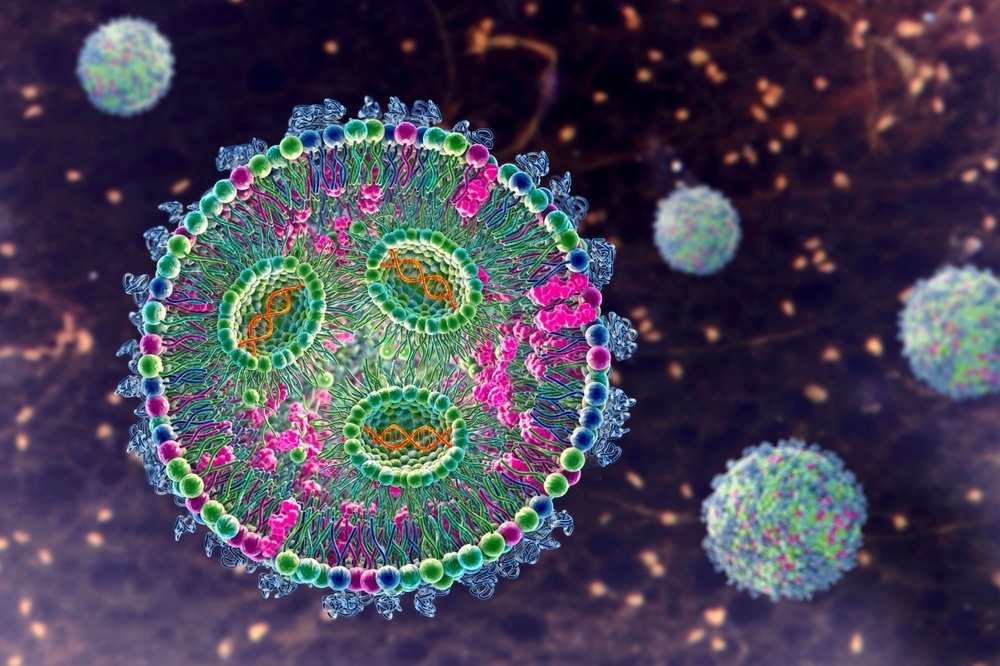Researchers at Johns Hopkins have discovered small particles that enhance therapeutic cancer vaccinations, which train the immune system to fight cancerous growths. These novel fat-based nanoparticles not only trigger a dual immune system response that strengthens the body’s defenses against cancer, but they also improve the tumor-targeting efficacy of vaccinations.

Image Credit: Kateryna Kon/Shutterstock.com
The researchers' findings were published in Nature Biomedical Engineering.
This research marks a pivotal turning point in our understanding of how lipid nanoparticles can be harnessed to optimize anticancer immunity. Our findings unlock new avenues for enhancing the efficacy of RNA-based treatments for cancer and infectious diseases.
Hai-Quan Mao, Professor, Department of Materials Science and Engineering, John Hopkins University
Lipid nanoparticles have drawn interest as carriers in cancer immunotherapy after becoming well-known for their role in delivering messenger RNA in COVID-19 vaccines. Prior studies concentrated on lipid nanoparticle optimization to elicit a robust response from T helper 1 cells, which allow the immune system to recognize and destroy malignant cells.
Mao, Yining Zhu, a Ph.D. candidate in biomedical engineering, and collaborator Sean C. Murphy, a professor of pathology at the University of Washington, adjusted the lipid nanoparticles’ composition to optimize immune-response activation through the use of a novel screening technique.
They discovered lipid nanoparticles that presented tumor antigens to Th1 and Th2 cells, two more types of helper cells, in tandem and produced responses at the same time.
Lipid nanoparticles were also used in conjunction with “checkpoint inhibitor treatment,” a type of cancer immunotherapy drug that aids the immune system in identifying and eliminating cancer cells. These inhibitors work by obstructing “checkpoints,” which are molecules on immune cells that can trigger or suppress the immune system.
Sometimes, cancer cells manage to get past these barriers and avoid being recognized by the immune system. The LNPs developed by the Mao team improve the therapeutic capacity to shrink tumors and lengthen patient life.
The study, according to the researchers, is distinctive since it shows how lipid nanoparticles could improve Th1 and Th2 responses, resulting in coordinated assaults on cancer by several immune cell types.
This dual-attack approach represents a new advance in cancer treatment.
Yining Zhu, Ph.D. Student, John Hopkins University
Journal Reference:
Zhu, Y., et. al. (2023) Screening for lipid nanoparticles that modulate the immune activity of helper T cells towards enhanced antitumour activity. Nature Biomedical Engineering. doi:1010.1038/s41551-023-01131-0